Ambient Chamber Music Pioneer, Cellist David Darling, Bows the Final String.
by John Diliberto 1/11/2021
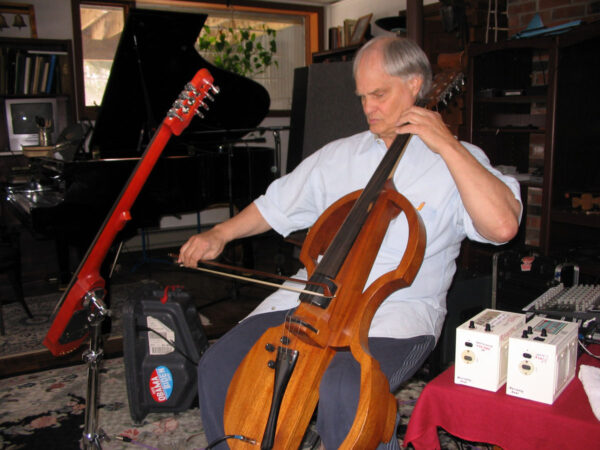
The world is missing a unique sound. Cellist David Darling left the planet on January 8th. Born in Elkhart, Indiana on March 4, 1941, he was 79.
It was Paul Winter who plucked David Darling out of an academic teaching career and a seat in the Nashville Symphony Orchestra. “He learned our music literally overnight,” recalled Winter. Across 8 years from 1970to 1978, Darling developed a sound with Winter that was open to many influences beyond classical. “David was my musical brother,” says Winter.
David Darling was a musician who was always open to a new sound, a new way of thinking about music. Classically-trained and jazz-converted, he played with The Paul Winter Consort in the 1970s, appearing on classic albums like Icarus. His cello is the instrument that first voices the Ralph Towner melody of the famous title track from that album. He released about 20 solo albums on the ECM, Narada, Relaxation Company, and Hearts of Space labels, and in the process, became a leading exponent of ambient chamber music.
David Darling appeared on Echoes many times between about 1991 and 2009. He was a maestro of melancholy and we’d often refer to him as the Lord of Largo. He didn’t deny that.
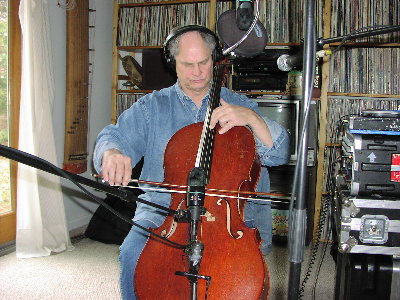 “Well, I really like modes and I’m really effected by a minor feeling,” he explained, “but you know I feel extremely exalted and happy in that minor place, to me it’s not sad, it’s not anything except has this quality of for me some kind of depth to it. It has a feeling of energy in it that I don’t somehow get from 1, 3, 5 major triads. But when it comes right down to playing the cello, my fingers seemingly will not go to major, I like some other modality.”
“Well, I really like modes and I’m really effected by a minor feeling,” he explained, “but you know I feel extremely exalted and happy in that minor place, to me it’s not sad, it’s not anything except has this quality of for me some kind of depth to it. It has a feeling of energy in it that I don’t somehow get from 1, 3, 5 major triads. But when it comes right down to playing the cello, my fingers seemingly will not go to major, I like some other modality.”
Darling was not a morose musician. In fact, much of his music has been geared towards the sound of affirmation and the healing arts. He worked with an organization called “Music for People” that promotes music as a means of self expression, for the musician and non-musician alike. In front of an audience, he’d often explode in free form bluesy scat singing. In the early 90s, he played one of the first Echoes Living Room Concerts, in my living room. That was back when we had audiences and I remember him turning this live session into a workshop, as he got everyone playing and bouncing egg shakers. He did the same thing at Imaginaria 1995 in Sao Paulo, Brazil, turning a panel discussion into a free form instrumental improvisation, with audience members coming on stage.
Andy Mitran of the Andy Mitran & Al Jewer duo said “No one has ever helped me feel more comfortable improvising than David. A generous spirit.”
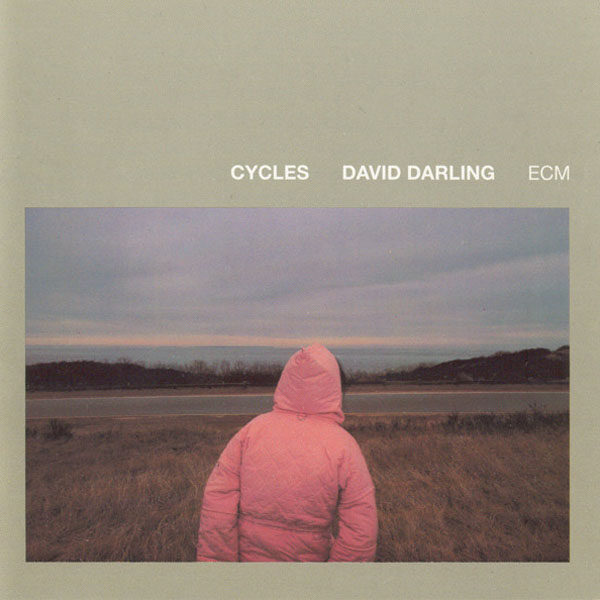 Former WXPN Diaspar DJ, Floyd Miller, had many encounters with Darling at Immaculata University where Darling held annual workshops.
Former WXPN Diaspar DJ, Floyd Miller, had many encounters with Darling at Immaculata University where Darling held annual workshops.
“My wife and I loved so much his performances that were part of the Music for People workshops at Immaculata University back in the 2000’s, recalls Miller. “We’ll never forget the way he taught us to appreciate not just music but the beautiful act of experiencing and making it together. He’d have the audience look and point to the person next to us and say, ‘No… it’s you’ and sing or play small instruments.”
Celtic harpist David Michael, formerly of the David Michael and Randy Mead duo also was touched by Darling. “He was a huge inspiration in my life and career. Perhaps my fondest personal memory was attending one of his workshops at Esalen which culminated in his invitation for me to play a duet with him for the group (cello and Celtic harp—improvised, of course) at the end of the workshop.”
But it was the soulful, heartrending sound Darling got from his cello that drew people like film director Wim Wenders to his music. He contributed to the scores of Until the End of the World and Far Away, So Close.
The die was cast when he recorded his first album for producer Manfred Eicher‘s ECM label.
“He had heard ‘Clouds’ that I had composed on a Ralph Towner session, and he said ‘oh, where have you been, I’ve been looking for you for a long time.'” Recalled Darling. “He said, ‘Let’s do a record’ and I played him ‘Clouds,’ he said perfect we’ll do ‘Clouds.’ So I get to Stuttgart, Germany and he says, ‘Okay, do anything you want and so I started playing goon-goon-bat-che-goon-gon, set the gon-gon-bah, and he walked out of the studio and said ‘Well, I’m not so interested in that scheisse, you know. I want you to do as deep as you can go.”
“This mantra has been with me all my life,” concluded Darling, with a smile.
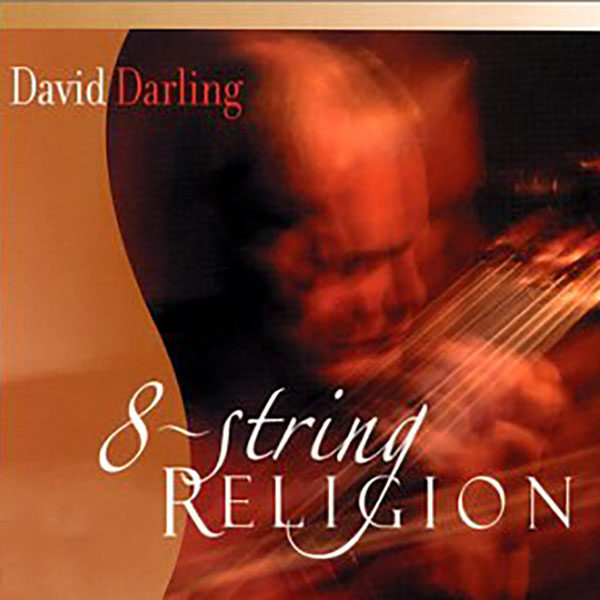 He recorded several albums for ECM, including hi solo debut in 1980, Journal October, Cello, Dark Wood, and perhaps most notably, Cycles, an ensemble record with piercing saxophone from Jan Garbarek, Colin Walcott from the Paul Winter Consort and Oregon on sitar and percussion, pianist Steve Kuhn, and bassist Arild Anderson. That album merged the Winter Consort sound with the ECM aesthetic. It’s a quiet storm of improvisation and melody and a quintessential ECM recording. He would go on to record with ECM guitarist Terje Rypdal and pianist Ketil Bjornstad. Rypdal told me they called themselves “The Disaster Duo” because they would get a lot wilder live than ECM producer Manfred Eicher would allow on record. Darling also recorded with pianist Peter Kater and Native flutist R. Carlos Nakai, composer and Madonna collaborator, Patrick Leonard, pianist Michael Jones and flutist Radhika Miller.
He recorded several albums for ECM, including hi solo debut in 1980, Journal October, Cello, Dark Wood, and perhaps most notably, Cycles, an ensemble record with piercing saxophone from Jan Garbarek, Colin Walcott from the Paul Winter Consort and Oregon on sitar and percussion, pianist Steve Kuhn, and bassist Arild Anderson. That album merged the Winter Consort sound with the ECM aesthetic. It’s a quiet storm of improvisation and melody and a quintessential ECM recording. He would go on to record with ECM guitarist Terje Rypdal and pianist Ketil Bjornstad. Rypdal told me they called themselves “The Disaster Duo” because they would get a lot wilder live than ECM producer Manfred Eicher would allow on record. Darling also recorded with pianist Peter Kater and Native flutist R. Carlos Nakai, composer and Madonna collaborator, Patrick Leonard, pianist Michael Jones and flutist Radhika Miller.
Surprisingly for the kind of music he made, Darling had a bout with alcoholism and drug addictions.
“Yeah, alcohol,” he said ruefully. “I was also taking speed because I never wanted to be down, I always wanted to be alive and up.” He subsequently went into rehab.
Darling electrified his cellos and ran them through all kinds of processing. It sometimes sounded like a richly textured synthesizer, sometimes like a guitar and often like cellos in space. He played a special 8-string cello, notable not only for the number of strings, but its skeletal, see through body that was designed like the outline of a cello. You can hear this to good and atmospheric effect on his two albums for Hearts of Space records, Eight String Religion and Cello Blue. Both are signature recordings of ambient chamber music.
“The reason I had it made was because I kept loving Ralph Towner’s work so much when I was on the road with him that I wanted something that had that response,” he recalled.
Darling was always a socially-conscious musician and that came to full expression on his 2009 album, Prayer for Compassion, which won a Grammy in 2010. I remember visiting him in his Connecticut home then and he was still bathing in the glow of President Barack Obama‘s recent election.
“It is so wonderful to see him and his beautiful wife and children in there now.” He enthused, happy to end eight years of the George W. Bush administration.
Prayer for Compassion was a political album hidden in contemplative clothes. It shares the sonic terrain of his previous recordings but contains subtle references that are not quite contemplative.
“It is definitely a political and social comment,’ he maintained. “For instance, ‘Untold Stories’ actually has this theme from ‘Johnny Comes Marching Home’ in it done as a dirge. People won’t even hear it, but it’s in there as a dirge because soldiers coming home from war – we always give it the big marching band, drums, and we’re glad they’re coming home, when the whole farce of war and all the killing that just took place and all the horror is nothing to celebrate.
Almost every title had a political reference. “September Morn” was begun on 9-11, “Heaven On Earth” references Darling’s ecological concerns. And then there’s “War Is Outdated.”
“War Is Outdated is a direct quote from what the Dalai Llama said in a seminar we were at” explained Darling. “Someone asked him, what do you think about war? And then that funny high laugh, he said, ‘Oh, I think it’s outdated.’ I got to put that down, because that’s exactly right. It’s outdated, man!”
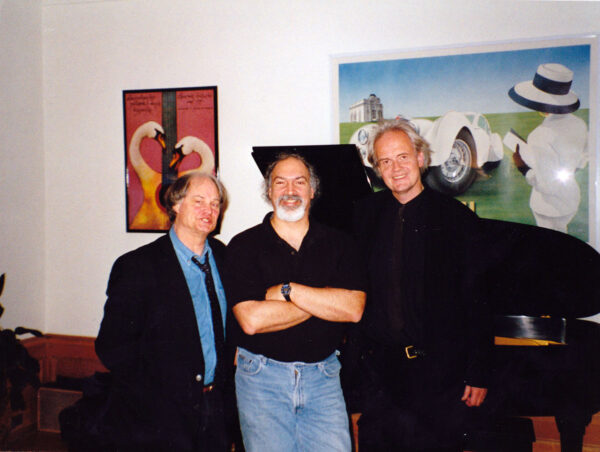
David Darling, John Diliberto, Ketil Bjornstad
Pianist Heidi Breyer said, “I still listen to Prayer for Compassion frequently. A piece of music that connects with a deep part of the human condition.”
Despite all his blues rambles and electronic dreamscapes, Darling still had roots in classical music.
“I’ve never lost my love for the rhapsodic cello or the virtuoso cello literature.” He insisted. “The sense of playing the cello as the cellist is meant to play is very, very much of interest to me. So on all my records we always have something that’s dedicated towards that literature.”
So many musicians have expressed their sadness to me, and testified to the influence Darling had on their lives
“David was an inspiration and a musical pioneer for myself and many cellists. He was a masterful player and a visionary composer for the cello and he opened doors for the next generations to walk through,” –cellist Hans Christian.
From Twitter: “An icon. David Darling was the first non-classical cellist I ever heard.” –cellist Zoe Keating.
This loss is really painful at Echoes. David Darling had been on many shows, and although I hadn’t talked to him since 2009, his music remained a strong presence on Echoes. In particular, albums like Eight-String Religion, Cello Blue and Prayer for Compassion. Beyond that, Darling was always a joy to be around. He brought light into the room and was a welcoming presence to all who came. His last recording was Parallel Universe with Thomasina Levy in 2018. David Darling, gone at 79, now in the skies, bowing the universe.

His sound is unique, incredible. A few years ago around Christmastime I got one of his albums at the local library, I believe it was Cello Blue. Beautiful is an understatement.
RIP dear David….